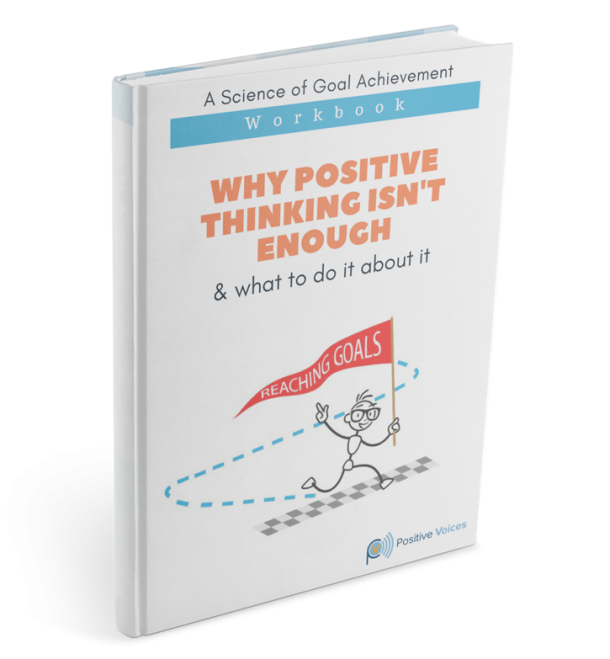It’s about TIME…or is it? Time management, time management, time management. We hear advice, tips, and tricks about time management all the time. After all, what do we have in this lifetime to spend if not time? We need to spend our time wisely, but perhaps, the focu s on managing time is a bit off track. Perhaps, what we really need to manage is our focus.
s on managing time is a bit off track. Perhaps, what we really need to manage is our focus.
I know for me, I often do the right things to manage my time. I know my priorities and deadlines. I schedule my appointments, meetings, and the time to accomplish my to-do’s. For example, I might schedule an appointment with myself to write a blog. The time slot comes, I sit down and then something happens. An email notification flashes on my screen, my phone rings, the dog does something cute, so I have to stop and give him a rub. A rub leads to seeing a stray paper on the floor, which takes me to the kitchen trash. “Hmmmmm, I would love a cup of coffee.” I start to make coffee and pick up my smartphone. Headline: Elton John’s Farewell to Yellow Brick Road Tour. What? I have to see Elton perform before he retires! I call my husband… you get the idea.
Focus is important. Without it, we are just reactively meandering down life’s path. What can we do? Here are a few of my favorite tips that have helped me keep my focus on track.
1. Realize Focus is Finite
Realize focus is finite because time and energy are finite. You only have so much time you can use to focus. You also only have so much energy you can use. So, you want to be smart with your goals and attention. To that end, consider, where can you get the most significant impact.
Ever hear of the Pareto Law? Vilfredo Pareto, an Italian economist, discovered the Pareto Ratio while studying wealth. He found the 80% of the wealth and income was owned by 20% of the population. This ratio is often called the 80/20 rule and has been witnessed and mirrored in many diverse domains. Since Pareto identified this trend over one hundred years ago, it has been found in different areas such as 20% of a company’s products/services represent 80% of sales. In languages, 20% of words account for 80% of the word occurrences. It’s also claimed that 80% of web links go to 20% of web pages. Search the web and you will find countless other examples of the 80/20 rule.
This might not be particularly scientific and somewhat anecdotal, but it highlights an important principle. Often the most value can be reaped from a minority of resources. For example, in my work, I find that my biggest impact comes from two of my activities: developing content (writing) and direct outreach and communications that lead to partnerships. I know I spend less than 20% of my time doing these activities. What if I dropped some of my less productive activities and bolstered these? The impact would be notable.
Where is the 80/20 rule in your life? Is there a place where you get a lot of return on your effort? How might you honor that? Is there a way you can spend more time doing your high-impact activities and less time doing the things that are a time suck?
2. Don’t Get Spread Too Thin
Are you doing too many things at once? Here’s the deal: if you focus on too many different things, you are not focusing at all. I know this firsthand.
This last year while launching Positive Voices and endeavoring to be a conscientious and present parent, I found myself constantly spread too thin. I was often on conference calls and in meetings that had nothing to do with my company or my child. When I took a step back, I knew the answer. I was on three boards, spending too much time volunteering while launching a company. While each of these areas is important, I was not honoring each. I knew I had to start letting go. And that is what I did. It was so empowering! I am currently down to only one board, and when the school needs a volunteer, I weigh when and how I will be present. I still do my part, but I am working much smarter.
What might you cut from your life? Sometimes we have to drop things we enjoy in honor of the bigger picture. An excellent place to start is spending some time thinking about what matters to you. What are your top priorities? It needs to be a very short list. If you are clear on these, it gives you a yardstick to measure against. For me, I want to consciously parent while growing Positive Voices. I have identified what needs to happen in the next year for me to accomplish these. These goals are focused on my process: what I need to be doing each day, week and month to get there.
When something arises that require my time, I can remind myself of my priorities and choose whether I will make time for this competing activity. Sometimes I realize I should not.
3. Create Smart Work Sessions
Once we decide something is a priority, we really should slate in some specific time to accomplishing the activity. It’s time to undertake some smart work sessions. Once scheduled, it comes down to 1) just doing it and 2) managing distractions.
Just Do It
Put the work session on your calendar: make an appointment with yourself. When the time comes to do your work, do it. Sounds simple and yet it can be very hard. Procrastination is a problem for most of us. I found the best way to tackle this is just committing to getting going. In Mel Robbin’s book, The Five Second Rule, she talks about how our goal related impulses and urges are often wise and can guide us. Her 5-second rule is defined as “The moment you have an instinct to act on a goal, you must 5-4-3-2-1 and physically move or your brain will stop you.” That’s it. Literally, count down and just start. Launch yourself into starting. This is not to say we act on any impulse but goal related ones. You will know if it’s really not wise (always use your judgment), but I have found this wisdom has helped me launch myself to get moving. Once moving, I often find a stride.
Manage Distractions
When we do sit down to work on something specific, we can set ourselves up for success. If we can work distraction-free, we can move from reactive work to creative work. This is where we can shine. We can focus up and leave all the reactive work for later.
One of the biggest reasons we have so many distractions now is the wealth of information that is coming at us from so many electronic sources. If we see a headline or a subject line of an email, it can derail us. Our curious brains are now off track wondering about what spicy tidbit is waiting for us to devour. The best way to conquer this? While in your creative mode, turn off your WiFi and put your smartphone on airplane (or at least “Do Not Disturb”) mode.
Sometimes our brains are distracted by a suddenly remembered task and it’s hard to put that aside for fear of forgetting to circle back and do it. If something is really nagging me, I offload it from my mind by writing it down. Knowing I have captured my task for safekeeping, I can keep plugging along on the current task at hand.
The brain performs best (and is less distracted) when we take a break after focusing for a stretch of time. Our attention spans have a natural cadence. It’s natural for our minds to wander. We can work with our natural rhythm. We can honor this by slating in breaks. After working for a stint, take a break and stretch your legs. There is lots of argument on what the perfect amount of time should be and, to a degree, it is idiosyncratic for each of us. I find I like to push for at least 20 minutes before taking a few moments.
What might you do during this break? Take a short walk to the coffee pot or merely stand and shake your limbs. The options are endless, but what you should NOT do is pick up your smartphone. A new study by Rutgers Business School found that taking a break using a smartphone didn’t recharge as effectively. Bottom line: back away from the smartphone and take a tech-free break instead.
4. Improving our Mental Focus: Meditation
We can understand our priorities. We can set aside the time. We can jump into our work sessions. We can take breaks. But is there something we can do to improve the actual quality of focus? Yes. There is. Meditation. People who meditate are able to hold their attention on tasks longer than those who do not meditate. Studies bear this out. Consider a study done at the University of California, Santa Barbara, where they had a group who took an intensive meditation class and another who took a nutrition class. All the students took the GRE test before and after their courses. As you have already guessed, the group who took the meditation class fared much better than the other. Their focus improved, as did the quality of their work.
To meditate, you do not need to overthink it. Often people don’t start a meditation practice because they believe they will do it wrong or that they have to start by jumping in for a full 20 minutes. Don’t worry about clearing your mind or doing it right. Just sit down, even for five minutes, close your eyes, and follow your breath. When your mind wanders, which it will, gently observe that you wandered and gently bring your attention back to your breath. Stop judging how you are doing it or worrying about whether you are getting a benefit. Stay with your breath.
I love what Russel Simmons tells us in his book, Success Through Stillness, on the matter of having a judgment-free habit of meditation:
“I also frequently use the analogy of brushing teeth. Most of us are concerned to one extent or another with dental hygiene, but we don’t dwell on the tooth-cleaning process. We just work away with that brush every day. Almost no one evaluates the brushing, to say, ‘That was a good brush!’ or, ‘Too bad—that was a bad brush.’ We simply do it!”
Love that passage! I found that very liberating to release judgment on my meditation practice. I started with five minutes and just committed to meditating and checking the box. I endeavored to reserve judgment. It really can be just that simple.
In Summary
That’s what has worked for me in upping my focus game:
- Realizing focus is finite.
- Not getting spread too thin.
- Creating smarter work sessions by just getting started while eliminating distractions.
- Sustaining a consistent meditation practice.
What do you think? Will you give it a try? Or, perhaps, you have something that has worked for you? We’d love to hear from you below!

